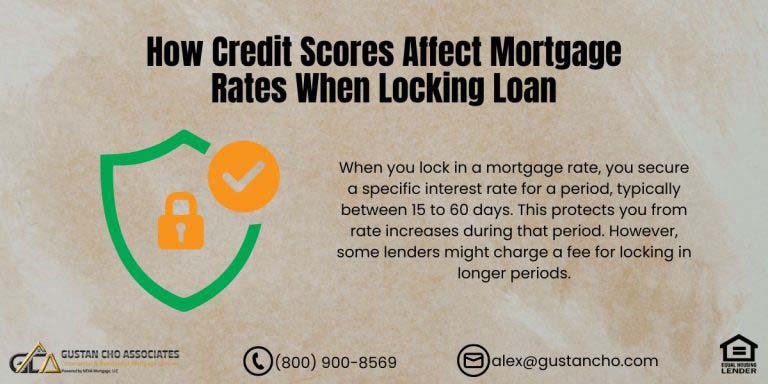This guide covers setting up written payment agreements with creditors and collection agencies so you can qualify and get pre-approved for a mortgage. There instances where written payment agreements with creditors are required to get approved for a mortgage loan.
HUD, the parent of HUD, does not require outstanding collection accounts with outstanding balances to be paid off or satisfied for a mortgage loan. There are two types of categories of collection accounts with FHA loans. Medical collections and non-medical collections.
HUD exempts medical collection accounts with outstanding credit balances no matter how much the outstanding medical collection balance is. HUD will not require that a percentage of the outstanding collection balance be used in the calculation of the mortgage borrower’s debt-to- income ratio. HUD does not count any charge off accounts and all non-mortgage charge off accounts. No matter how much the balance, charge-offs are exempt from debt-to-income ratio qualifications. In this article, we will discuss and cover payment agreements with creditors and collection agencies.
How Are Mortgage Charged-Offs Accounts Viewed By Underwriters
Mortgage charge offs are treated differently. Whether it is a first mortgage or second mortgage, there is a three year mandatory waiting period to qualify for an FHA loan after mortgage charge-off. With conventional loans, there is a mandatory 7-year waiting period to qualify for a conventional loan after mortgage charge-off. The mortgage charge-off can be after bankruptcy and/or foreclosure. Lenders do not want to see any late payments after bankruptcy or a housing event. Now, with written agreements with creditors come into play for borrowers who have large amounts of outstanding collection accounts balances.
Written Payment Agreements With Creditors For Large Collection Accounts
As mentioned in the previous paragraph, the Federal Housing Administration does not require that outstanding collection accounts be paid off in order for the borrower to qualify for an FHA loan. Medical collection accounts are treated differently than non-medical collection accounts. Medical collection accounts and charge off accounts, with outstanding balances, are exempt from any percentage of the outstanding collection account balance in the calculation of debt to income ratios.
How To Set Up Written Agreements With Creditors
When dealing with creditors, it’s crucial to have written payment agreements to ensure clarity and protect both parties involved. Below is a general template for a written payment agreement. Keep in mind that this is a basic example, and you may need to customize it based on your specific situation and local laws. It’s advisable to consult with a legal professional to ensure that the agreement complies with applicable regulations.
- [Your Name]
- [Your Address]
- [City, State, ZIP Code]
- [Email Address]
- [Phone Number]
[Date]
- [Creditor’s Name]
- [Creditor’s Address]
- [City, State, ZIP Code]
Dear [Creditor’s Name],
Subject: Payment Agreement
I am writing to formalize a payment arrangement regarding the outstanding debt I owe to [Creditor’s Name]. The purpose of this agreement is to establish clear terms for repayment and to avoid any misunderstandings between us.
Debtor Information: Debtor’s Full Name: [Your Full Name] Debtor’s Address: [Your Address] Debtor’s Phone Number: [Your Phone Number]
Creditor Information: Creditor’s Full Name: [Creditor’s Full Name] Creditor’s Address: [Creditor’s Address] Creditor’s Phone Number: [Creditor’s Phone Number]
Debt Details: Amount Owed: [Total Amount] Description of Debt: [Brief Description]
Payment Terms:
The total debt of [Total Amount] will be repaid in [Number of Installments] equal monthly installments.
The first payment will be due on [First Due Date], and subsequent payments will be due on the [Same Day of the Month] of each month.
Payments will be made via [Payment Method, e.g., check, bank transfer] to the following account: [Account Information].
Late payments may incur a late fee of [Late Fee Amount] per occurrence.
Interest (if applicable):
If interest applies, it will be calculated at a rate of [Interest Rate]% per annum.
Early Repayment:
The debtor reserves the right to make early repayments without penalty.
Default:
In the event of default, the creditor may take appropriate legal action to recover the outstanding amount.
Governing Law:
This agreement will be governed by the laws of [State/Country]. Please review the terms outlined in this agreement carefully. If you agree with the terms, please sign and date below. Your signature indicates your acceptance of the terms and your commitment to fulfilling this payment agreement.
Debtor’s Signature: ______________________ Date: _______________
Creditor’s Signature: ______________________ Date: _______________
Sincerely,
[Your Full Name]
Remember, it’s crucial to involve a legal professional to review and potentially modify this agreement according to your specific circumstances and local laws. Additionally, make sure both parties retain a copy of the signed agreement for reference.
HUD Guidelines on Medical vs Non-Medical Collections on FHA Loans
Non-medical collection accounts, if consumers have a total of $2,000 or greater in outstanding collection accounts, then 5% of the outstanding collection account balance will be used in calculating debt to income ratios. This may not be a big issue for some borrowers with smaller outstanding account balances. However, if a borrower has larger outstanding collection balances, the 5% of the outstanding calculations may disqualify the borrower due to exceeding the maximum debt to income ratio caps. However, FHA allows written payment agreements with creditors to be used in lieu of the 5% deduction of outstanding collection accounts.
Case Scenario of Written Payment Agreements With Creditors To Qualify For a Mortgage
For example, if the borrower has $10,000 in total outstanding collection accounts, then HUD will mandate that 5% of the $10,000 or $500 need to be used in the calculation of the borrower’s debt-to-income ratios. $500 per month monthly payment is huge and it is equivalent to a $100,000 mortgage payment (principal and interest). The $500 will be used in the calculation of debt-to-income ratios even though consumers do not have to pay anything every month.
How Written Payment Agreements With Creditors Benefit Borrowers
If consumers were to set up a written payment agreement with creditors and have a $200 written payment agreements with creditors, then the $200 will be used in lieu of the $500 in the calculation of the debt-to-income ratio. There are no seasoning requirements on the number of minimum payments to be made once the written payment agreements with creditors are signed by both the creditors and debtor on collection accounts. This is different from judgments and tax liens.
Written Payment Agreements With Creditors on Judgments and Tax Liens

With collection accounts, as long as both parties sign the written payment agreements with creditors, that date is the effective date.
The lender can use the amount on the written payment agreements with creditors even if a single payment has not been made. On written payment agreements with creditors on judgments and tax liens, the borrower needs to make three months of minimum payments and they cannot make all three future payments all at once and qualify. HUD requires three consecutive payments be made with no upfront advance payments.
Written Payment Agreements With Creditors: Lenders With Overlays on Collection Accounts
Just because borrowers meet FHA Guidelines on Collection Accounts does not mean that a particular lender will do the FHA Loan. Many banks and mortgage lenders, for example, will not take on a borrower with any collection accounts with outstanding collection balances. Many others will not accept any borrowers who had any outstanding collection accounts that have been paid for at least two years.
Although HUD Guidelines do not require to satisfy outstanding collection account balances, these banks and lenders do not accept them due to their mortgage lender overlays.
Overlays are the mortgage lender’s own set of rules and requirements on top of federal minimum mortgage lending guidelines. Borrowers turned down for a mortgage loan due to overlays but do meet the federal lending guidelines, please contact us at 800-900-8569 or text us for a faster response. Or email us at gcho@gustancho.com. We are an aggressive mortgage lender with no overlays and just go off the federal minimum mortgage lending guidelines.









